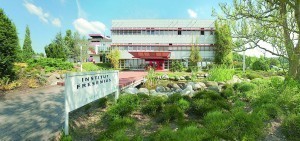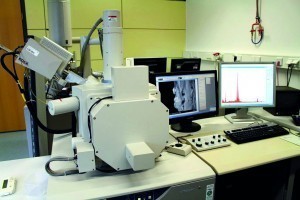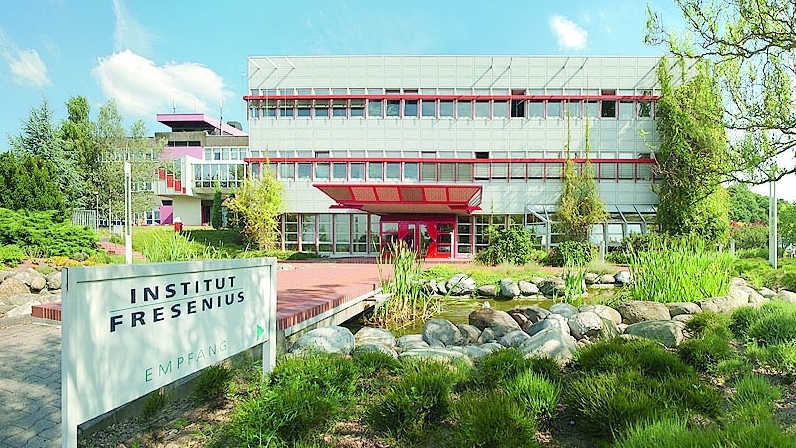The German Accreditation Body (DAkkS) has officially accredited SGS Institut Fresenius as a calibration laboratory. The accreditation was carried out in accordance with DIN EN ISO/IEC 17025:2005 and covers the calibration of temperature and humidity measurements, which are also of great importance for the production and use of electronics.
The SGS Group (full name of SGS since its foundation in 1919: Société Générale de Surveillance SA, headquartered in Geneva) is the world's leading company in the fields of inspection, testing, verification and certification. It is listed on the stock exchange. Its network of more than 2600 branches and laboratories worldwide employs around 94,000 people. The SGS brand is synonymous with reliability, safety and quality.
SGS has been active on the German market since 1920 as SGS Germany GmbH (head office: Hamburg) with inspection, monitoring and testing services [1]. Today, around 3000 employees at 40 locations at all stages of the value chain ensure more safety, more efficiency and more quality. The German SGS Group also includes SGS Institut Fresenius GmbH, SGS-TÜV Saar and SGS Gottfeld Industrial Services.
Calibration - an important building block for quality assurance
SGS Institut Fresenius GmbH is one of the leading providers of non-medical, industry-related laboratory analysis in Europe [2]. Its expertise is reflected in more than 180 certifications, accreditations and approvals as well as 155 years of experience in the field of analysis (Fig. 1).
 Fig. 1: SGS Institut Fresenius in Taunusstein
Fig. 1: SGS Institut Fresenius in Taunusstein
With the approval as a calibration laboratory, the Taunusstein-based institute has now gained another important field of activity. This is in response to the growing accuracy requirements in industry, particularly in the electronics sector. The technicians at SGS Institut Fresenius are now authorized to calibrate drying ovens and climatic chambers at temperatures from -80°C to 250°C and relative humidities from 5% to 98% and a usable volume of up to 32m³, as well as temperature and humidity sensors.
Only a few other calibration services are accredited for the calibration of climate chambers for this relatively wide range of humidity and high temperatures. This benefits users of temperature and climate chambers throughout Germany in particular - for example in testing, the pharmaceutical industry or electronics production. Direct-reading thermometers, data loggers for room climate monitoring, refrigerators, drying ovens, salt spray and condensation test chambers and emission chambers can also be calibrated. Some of these listed calibration applications are essential for the electronics industry.
Principle of success: regular calibration
As part of their quality management, many companies are obliged to calibrate their measuring equipment, such as thermometers or humidity sensors, at regular intervals. This is the only way to guarantee consistent quality and professional results. Calibration must take place at regular intervals in certain industries in order to check the extent to which measuring devices indicate undesirable deviations from the normal value. If the calibration results are out of tolerance, further steps can then be taken to guarantee consistent quality and safety. DAkkS accreditation guarantees the highest precision in calibration by SGS Institut Fresenius. The calibration certificates issued are also recognized by the ILAC (International Laboratory Accreditation Cooperation) and are therefore valid worldwide.
Material and error analysis
The Dresden branch of Fresenius is located in the center of German microelectronics. With its Microelectronics & Special Analytics division, it offers special services for the semiconductor industry, including its suppliers and technologically related sectors. In particular, it focuses on industry segments in which micro- and nanostructures or thin-film systems are used (Fig. 2). Fig. 2: Failure and damage analysis is an important basis for reliable semiconductors
Fig. 2: Failure and damage analysis is an important basis for reliable semiconductors
The strengths lie particularly in material, surface and layer analysis, but also in the investigation of process media. An interdisciplinary team of more than 40 employees can draw on decades of experience and state-of-the-art analytical methods, whether chemical, biological or physical analysis. Assistance can be provided individually along the entire value chain: From product and technology development to process control and the finished product. Here too, carefully calibrated measuring equipment is a prerequisite for precise work.


